
Which website pages should you noindex? - Suffari
This article will discuss the various types of pages that should be noindexed and provide tips for optimizing your website's crawlability. What does it mean to noindex a webpage? Why is it important to noindex certain pages on my website? How can I instruct search engines not to index specific pages? Let's get started!
Table of Contents
Knowing which website pages you should noindex, in every scenario.
Thin or Non-Informative Content
Sitemaps and On-Page Instructions
What are the potential consequences of failing to properly manage a website's indexing?
What measures can be employed to safeguard confidential information from search engine indexing?
Knowing which website pages you should noindex, in every scenario.
Are you looking to improve your website's SEO during the development stage? Then, it is essential to understand which website pages should be noindexed. Noindexing is a way to instruct search engines not to index certain pages on your website, ensuring that only the most valuable and relevant pages appear in search results.
Development Stage
When it comes to the development stage of a website, it is crucial to prevent search engines from indexing your site before it is fully ready to go live. This is important because you want to ensure that the unfinished or potentially flawed aspects of your site are not being presented to the public or affecting your search engine rankings. By using the noindex meta tag or implementing directives in the robotstxt file, you can effectively communicate to search engine crawlers that certain pages should not be indexed. This is a common practice for websites under construction or undergoing significant changes, and it can help you avoid any negative impact on your SEO efforts.
During the development stage, it is also a good idea to keep non-informative or thin content pages, such as placeholder or temporary pages, out of the search engine's index. These pages typically do not add value for users and may even detract from the overall quality of the website. By noindexing these pages, you can focus the search engine's attention on the substantive and relevant content that will be available when the site launches. This strategic approach can contribute to a more favorable and purposeful display of your website in search results.
Furthermore, as you make changes and updates to your website, it's important to be mindful of the noindex tag and its impact, ensuring that it is only applied to the pages you genuinely want to keep out of the search engine's index. This level of control over what is being presented in search results can be instrumental in shaping the initial impression and overall perception of your website once it is live and fully optimized.
Web developers and site owners often leverage the capabilities of technical SEO to support their efforts in ensuring that the right pages are indexed at the right time, and this includes the strategic use of noindex directives to manage the visibility of specific pages during the development and refinement of the website.
Thin or Non-Informative Content
When addressing thin or non-informative content pages on a website, it's important to consider the potential impact on the overall search engine optimization (SEO) strategy. Pages that contain minimal or low-value content, or that are not particularly enriching for the user experience, may be prime candidates for the noindex tag. These pages could include, for example, brief placeholder content, automatically generated content, or any other material that doesn't contribute substantially to the website's relevance or the user's understanding of the topic.
By noindexing these pages, website owners and administrators can take proactive steps to help prevent the indexing of content that is unlikely to rank well in search results or deliver meaningful value to visitors. Additionally, this approach can assist in directing search engine crawlers towards the more substantial and purposeful content on the site, which is particularly beneficial for guiding the focus of the indexing process and supporting a more favorable presentation in search results.
It's worth noting that the decision to noindex thin or low-quality content should be part of a broader strategy to uphold the overall quality and relevance of the indexed pages. In conjunction with this, efforts to enrich, revise, or remove such content may be necessary to fortify the website's capacity to provide high-quality, valuable material to its audience, thereby contributing to a more effective and impactful SEO performance over time.
Archive, Author & Tag Pages
Archive, author, and tag pages are often present on websites as a means of organizing and categorizing content. While they serve a functional purpose for internal site structure and navigation, they may not always be the most suitable for indexing in search engine results. These pages typically contain a collection of links to individual posts or pages, and as such, they may be considered less critical in the context of search visibility and user engagement.
By using the noindex tag on archive, author, and tag pages, webmasters can influence search engine crawlers to bypass these sections when determining the display of search results. This can be particularly advantageous in streamlining the focus of search visibility towards the core and substantive content of the website, as well as any landing pages or articles that are more likely to deliver value and attract organic traffic.
Implementing the noindex directive on these pages also contributes to a more deliberate and strategic approach to managing the site's overall search performance, as it affords a level of control over which specific pages are presented in search results, further enhancing the precision and intent behind the website's indexed content. By doing so, site owners can optimize the portrayal of their site in search results and support a more purposeful and effective user experience for individuals discovering the site through search engines.
Internal Search Results
Internal search results pages are a byproduct of a website's search feature, allowing users to query the site for specific information or resources. While these pages are valuable for on-site navigation and user convenience, they may not necessarily align with the content that a website owner wishes to have displayed in search engine results. In many cases, the content that appears on internal search results pages is already indexed through the individual site pages, and as a result, presenting these internal search results in search engine listings may be duplicative and dilute the overall search visibility and ranking potential of the site's primary content.
To address this, it is often advisable to use the noindex meta tag to prevent search engines from indexing internal search results pages. This strategic application of the noindex directive can help maintain the focus of search engine crawlers on the substantive and valuable content of the website while minimizing the visibility of internal search results pages in search listings. By doing so, website owners can help streamline and enhance the presentation of their site in search results, emphasizing the most pertinent and engaging content for users and optimizing the overall search performance of the website
Confidential Information
Pages that contain confidential information, such as private policy, terms of service, or internal company documents, should be carefully safeguarded from unauthorized access and prevented from appearing in search engine results. This is essential to protect the privacy and security of such information and to ensure that it is not inadvertently exposed to a wider audience through search engine indexing.
One of the most effective methods to achieve this is by utilizing the noindex meta tag to communicate to search engine crawlers that these specific pages should not be included in search results. By implementing the noindex directive on pages with confidential information, website owners can establish an added layer of control and security, reducing the risk of sensitive content being surfaced in search listings and minimizing the potential exposure of this information to individuals conducting online searches.
Furthermore, in conjunction with using the noindex tag, it is also beneficial to employ robust access restrictions, such as password protection or other authentication measures, to reinforce the privacy and confidentiality of these pages. This multi-faceted approach helps to fortify the integrity of the website's sensitive content and supports a more secure and compliant online presence, aligning with best practices for information security and search visibility management.
Sitemaps and On-Page Instructions
When aiming to help search engine crawlers understand and follow the structure and content of a website, the utilization of sitemaps and on-page instructions is a valuable and strategic approach. By providing a comprehensive sitemap that encompasses the essential pages and content of the site, website owners can facilitate the discovery and indexing of these key elements by search engines, enhancing the overall visibility and accessibility of the site in search results.
In addition to sitemaps, on-page instructions, such as the use of meta tags and directives, further contribute to guiding search engine crawlers on how to approach and interpret the content of the website. For instance, the implementation of canonical tags can help specify the preferred version of a page, while the use of meta robots directives can indicate to search engines which pages to crawl or not to crawl, as well as which pages to index or not to index. These on-page instructions function as a form of proactive guidance for search engine crawlers, empowering website owners to optimize the indexing and display of their content in search results, and to reinforce the site’s alignment with their intended SEO strategy.
By integrating both sitemaps and on-page instructions as part of a comprehensive technical SEO strategy, website owners can enhance the search engine's understanding of their site's structure and content, and promote a more efficient and purposeful indexing process. This, in turn, can support the site's overall search performance and the delivery of a more targeted and relevant user experience for individuals engaging with the site through search engine queries.
When to Noindex and Index
The decision of when to noindex or index a page on a website should be informed by a strategic assessment of its value and relevance to the user experience and overall SEO objectives. Pages that are integral to the site’s value proposition, provide substantive and unique content, and are instrumental in fulfilling the information needs of the target audience, are prime candidates for indexing. This encompasses the core landing pages, in-depth articles, product pages, and any other material that is designed to be prominently showcased in search engine results and to attract organic traffic.
Conversely, pages that are not germane to the primary content and objectives of the website, or that offer limited or redundant value to users and search engines, may be better suited for the noindex directive. This includes, but is not limited to, duplicate content pages, non-essential archives, internal search results pages, and any other content that does not align with the site’s optimization and user engagement goals. By discerningly applying the noindex tag to these pages, website owners can refine the scope and quality of their indexed content, minimizing the inclusion of extraneous or non-essential material in search results and reinforcing the focus on the most relevant and valuable pages.
This strategic and deliberate approach to determining when to noindex or index a page contributes to the cultivation of a more purposeful and effective search presence for the website while supporting a more streamlined and targeted user experience for individuals accessing the site through search engines. It aligns with best practices in SEO and content management, and enables website owners to exercise greater control over the portrayal and visibility of their content in search results, ultimately contributing to the enhancement of their overall search performance and the fulfillment of their digital objectives.
Passing Link Equity
Link equity, often referred to as link juice, is a crucial element in the realm of search engine optimization, as it denotes the value and authority that is passed from one page to another through hyperlinks. When determining which pages to noindex and index, it is important to consider the strategic flow of link equity throughout the site, and to ensure that this valuable resource is being effectively channeled to the most critical and high-priority pages.
Pages that are intended to serve as focal points for link equity distribution, such as core landing pages, in-depth articles, and product pages, are prime candidates for indexing, as this allows them to attract and accumulate link equity, thereby bolstering their authority and visibility in search results. By contrast, pages that are not designed to be primary beneficiaries of link equity, or that feature content of a more ancillary or duplicative nature, may be more suitably assigned the noindex directive, helping to channel the flow of link equity towards the indexed pages and fortify their standing and performance in search results.
By fostering a strategic and discerning approach to the indexing and noindexing of pages based on their link equity considerations, website owners can orchestrate a more purposeful and impactful distribution of this valuable resource throughout the site, elevating the authority and relevance of key pages and enriching the overall search performance and visibility of the website in a targeted and meaningful manner.
Avoiding Duplicates
Duplicate content, which refers to substantial similarities or identical matches of content across multiple pages, can have detrimental effects on a website's search engine optimization, as it can confuse search engines and dilute the visibility and ranking potential of the involved pages. In the context of addressing duplicate content, it is essential to employ strategic measures to prevent the indexing of these redundant or overlapping pages, thereby mitigating the adverse impact on the site's search performance and user experience.
By using the noindex tag to exclude duplicate content pages from search engine indexing, website owners can proactively manage and mitigate the challenges associated with duplicated material, such as the potential for keyword cannibalization and the dispersion of ranking authority across multiple versions of the same content. Additionally, the utilization of canonical tags, which designate the preferred version of a page, can further support the strategic consolidation and indexing of the most authoritative and relevant iteration of the content, reinforcing the site's search visibility and promoting a more seamless and purposeful presentation of the content in search results.
This holistic and strategic approach to addressing duplicate content through the effective use of noindex tags and canonical tags supports the preservation and optimization of the site's indexed content, mitigates the complexities and implications of duplicate material, and fortifies the overall search performance and user engagement facilitated by the website. It aligns with established best practices in SEO and content management, and empowers website owners to effectively navigate and mitigate the challenges posed by duplicate content within the digital landscape.
FAQs
What are the potential consequences of failing to properly manage a website's indexing?
Failing to appropriately manage a website's indexing can lead to a range of potential consequences that may impact its search performance and user experience. This includes the inadvertent display of unfinished or flawed content to the public, the dilution of search visibility and ranking potential due to the inclusion of non-informative or low-value pages, the exposure of confidential or sensitive information in search results, and the propagation of duplicate content, which can lead to keyword cannibalization and diminished authority for the involved pages. These consequences can collectively undermine the website's overall search performance, its alignment with SEO best practices, and the quality and relevance of the user experience it delivers.
How can the strategic use of noindex and index directives contribute to a more effective SEO strategy?
The strategic application of noindex and index directives empowers website owners to exert a targeted and deliberate influence on the visibility and presentation of their content in search engine results. By discerningly applying the noindex directive to non-essential, duplicate, or low-value content, and, conversely, indexing pages that are instrumental to the site's value proposition and user engagement, website owners can refine and optimize their site's presence in search results, fortify the strategic flow of link equity, and support a more purposeful and impactful user experience. This strategic utilization of noindex and index directives aligns with established best practices in SEO and content management, and contributes to the cultivation of a more effective and targeted SEO strategy over time.
What measures can be employed to safeguard confidential information from search engine indexing?
To safeguard confidential information from search engine indexing, website owners can implement a multi-faceted approach that combines the strategic use of the noindex directive with robust access restrictions. This may involve applying the noindex meta tag to specific pages containing confidential information, as well as implementing measures such as password protection, authentication requirements, and secure server configurations to restrict access to these pages. By integrating these protective measures, website owners can help prevent the inadvertent exposure of confidential information in search results and reinforce the privacy and security of such content within the digital domain.
Conclusion
In conclusion, it is important to carefully consider which pages of your website should be noindexed in order to improve your website's SEO and overall performance. Thin or non-informative content, confidential information, and internal search results are just some examples of pages that should be excluded from search engine indexing. By properly utilizing sitemaps, on-page instructions, and the noindex tag, you can ensure that your website is effectively crawled and indexed by search engines. Remember to also prioritize optimizing and indexing pages that provide value to your users. Don't let duplicate content harm your SEO and make sure to pass link equity through pages that are noindexed. Consider these factors and make informed decisions to optimize your website's success.





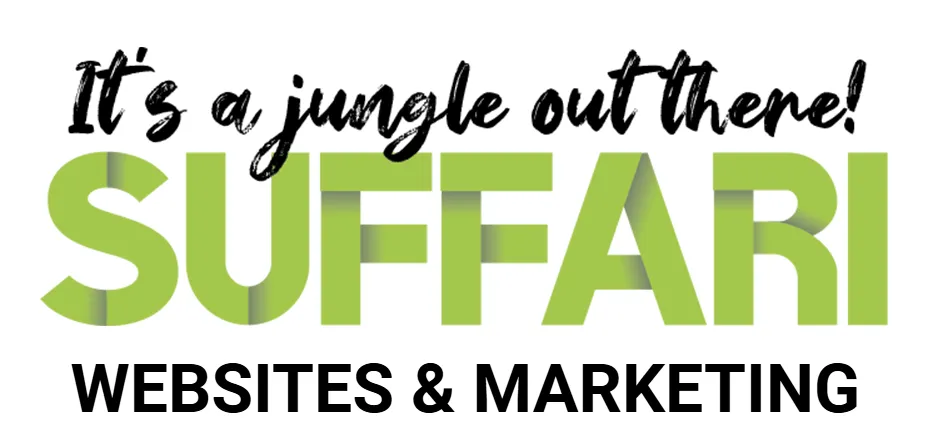

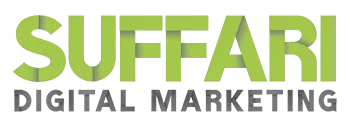


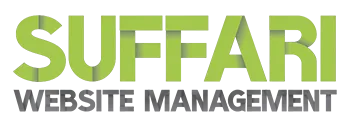

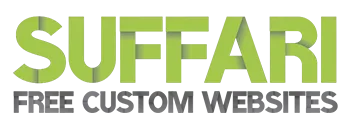


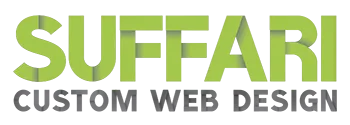







Youtube